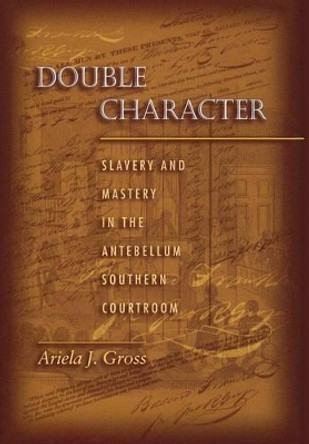Description
Is race something we know when we see it? In 1857, Alexina Morrison, a slave in Louisiana, ran away from her master and surrendered herself to the parish jail for protection. Blue-eyed and blond, Morrison successfully convinced white society that she was one of them. When she sued for her freedom, witnesses assured the jury that she was white, and that they would have known if she had a drop of African blood. Morrison's court trial-and many others over the last 150 years-involved high stakes: freedom, property, and civil rights. And they all turned on the question of racial identity.
Over the past two centuries, individuals and groups (among them Mexican Americans, Indians, Asian immigrants, and Melungeons) have fought to establish their whiteness in order to lay claim to full citizenship in local courtrooms, administrative and legislative hearings, and the U.S. Supreme Court. Like Morrison's case, these trials have often turned less on legal definitions of race as percentages of blood or ancestry than on the way people presented themselves to society and demonstrated their moral and civic character.
Unearthing the legal history of racial identity, Ariela Gross's book examines the paradoxical and often circular relationship of race and the perceived capacity for citizenship in American society. This book reminds us that the imaginary connection between racial identity and fitness for citizenship remains potent today and continues to impede racial justice and equality.
What Blood Won't Tell brings us at long last a brilliant analysis of the changing meanings of race in American law from the colonial era to the present. It will be indispensable for any informed discussions of a subject that lies at the very core of both American history and identity. -- David Brion Davis author of Inhuman Bondage: The Rise and Fall of Slavery in the New World This exquisite inquiry into the complex and shifting ways in which the 'black-white' divide has been marked over the last three centuries excavates the deep roots of racial identification. -- Patricia J. Williams, author of The Alchemy of Race and Rights
About the Author
Ariela J. Gross is John B. and Alice R. Sharp Professor of Law and History, University of Southern California.
Reviews
What Blood Won't Tell brings us at long last a brilliant analysis of the changing meanings of race in American law from the colonial era to the present. It will be indispensable for any informed discussions of a subject that lies at the very core of both American history and identity. -- David Brion Davis * author of Inhuman Bondage: The Rise and Fall of Slavery in the New World *
This exquisite inquiry into the complex and shifting ways in which the 'black-white' divide has been marked over the last three centuries excavates the deep roots of racial identification. -- Patricia J. Williams, author of The Alchemy of Race and Rights
Through a close reading of racial identity trials in America, this book offers an eloquent contribution to ongoing debates over affirmative action, identity politics and the construction of a "colorblind" society. Historian Gross argues that racial identity trials--court cases in which outcomes turned on determining a person's "race" and their concomitant rights and privileges--provides an excellent basis for viewing the construction of "whiteness" and assessing the volatile category of race in American society. The author rigorously examines select cases including the outcomes of suits for freedom by onetime slaves like Abby Guy, who in 1857 convinced an all-white male jury that she was white and thus deserving of freedom. Upsetting the familiar notion of the "one-drop rule" in determining racial identity, Gross shows that in such cases the notion of what constituted race was itself as much in play as whether a particular individual could be identified (through some unstable combination of expert and "common sense" opinion) as one race or another. The social "performance" of identity is key, and enduringly so, as Gross periodically underscores by reference to various modern debates and trends. * Publishers Weekly (starred review) *
Gross' book, a history of cases in which people have challenged their official racial designation, eloquently demonstrates just how difficult it can be to say what race--mine, yours, anybody's--actually consists of...What Blood Won't Tell is largely a catalog of delusions and the strategies by which Americans tried to prop up those delusions in courts of law...The very fact that some people with African "blood" (not a biologically valid concept, but a common term, then and now) could pass themselves off as white betrayed the reality; blacks, whites and Indians had been marrying, having sex and producing mixed-race children from the very beginning...A book like What Blood Won't Tell--which is, after all, a history, not a prescription--may not offer much that's usable as a guide to the future. But it does provide us with plenty of evidence of how badly we can and have screwed up, and how much imagination and determination it will take to do it better. -- Laura Miller * Salon.com *
Argues forcefully that, for all the progress our public life has made toward the formal semblance of racial equality, the history and legal armature of white racism are much more stubborn, institutionalized features of our common life than a single presidential election, no matter how groundbreaking, can wipe away...Gross maps, through countless twists and turns, the extraordinary legal fictions enlisted to keep the formal workings of racial privilege on track. [The book] serves as a bracing reminder that "postracial politics," however captivating it may be as a catchphrase, is very nearly an oxymoron in American life. -- Brian Gilmore * Bookforum *
Challenging the presumption of many scholars of the dominance of the "one-drop" rule in conferring black status, Gross argues that despite the rule, in court and by custom, racial boundaries were much more fluid and flexible--yet, primarily in the service of white supremacy...Gross also reflects on how this history of race determination fits into current efforts at a "color-blind" approach that ignores the significance of race in American culture. -- Vernon Ford * Booklist *
What Blood Won't Tell chronicles the history of efforts to determine racial identity in the courts. Seldom, if ever, does science enter into the effort; rather, attorneys and others turn their attention to the evidence of skin color, social behavior, cultural customs, and other subjective and changeable evidence. The only thing that remains constant is the underlying assumption that white equals "full social and political citizenship" while anything else is inferior, less-than, and undeserving of Constitutional protection...The overriding opinion was that it's best to be white, but if you can't manage that, just don't be black. This shameful and ignorant American caste system is still as deeply entrenched in the nation's consciousness as ever, it seems...What Blood Won't Tell turns out to be a riveting overview of legal decisions regarding race and freedoms and a dizzying look at the insanity of social hierarchy and its ongoing impact on social development. -- Deborah Adams * Curled Up with a Good Book *
Gross [has written] an amazing book that addresses the relationship between race and citizenship in the U.S. Gross's presentation is both detailed and complex. The first half is devoted to establishing the role race and racism have played within the history and law of the U.S., as well as further developing the rich literature within whiteness scholarship. The strength of her argument lies in her ability to inject specific examples, oftentimes cases from the 19th century, into her whiteness discussions. The second half is equally impressive. Here Gross utilizes critical race theory to discuss black Indian identity, race in Hawaii, and other contemporary issues. This book is innovative, accessible, and valuable for undergraduates, graduates, and laypeople interested in a deep conversation on race and history. -- A. R. S. Lorenz * Choice *
Awards
Winner of Best Book Award in Race, Ethnicity, and Politics 2009. Joint winner of James Willard Hurst Prize 2009 and Lillian Smith Book Awards 2009. Nominated for Avery O. Craven Award 2009 and James A. Rawley Prize 2009 and Merle Curti Award 2009 and Pulitzer Prizes 2009 and J. Anthony Lukas Book Prize 2009 and Anisfield-Wolf Book Awards 2009 and John G. Cawelti Award 2009 and David J. Langum, Sr. Prize in American Legal History or Biography 2008 and John Phillip Reid Book Award 2009 and Littleton-Griswold Prize 2009 and John Hope Franklin Publication Prize 2009 and Ralph Waldo Emerson Award 2009 and J. David Greenstone Book Prize 2009 and Frederick Douglass Book Prize 2009 and Frank L. & Harriet C. Owsley Award 2009 and Julia Cherry Spruill Prize 2009 and Allan Sharlin Memorial Award 2009.
Book Information
ISBN 9780674047983
Author Ariela J. Gross
Format Paperback
Page Count 384
Imprint Harvard University Press
Publisher Harvard University Press






